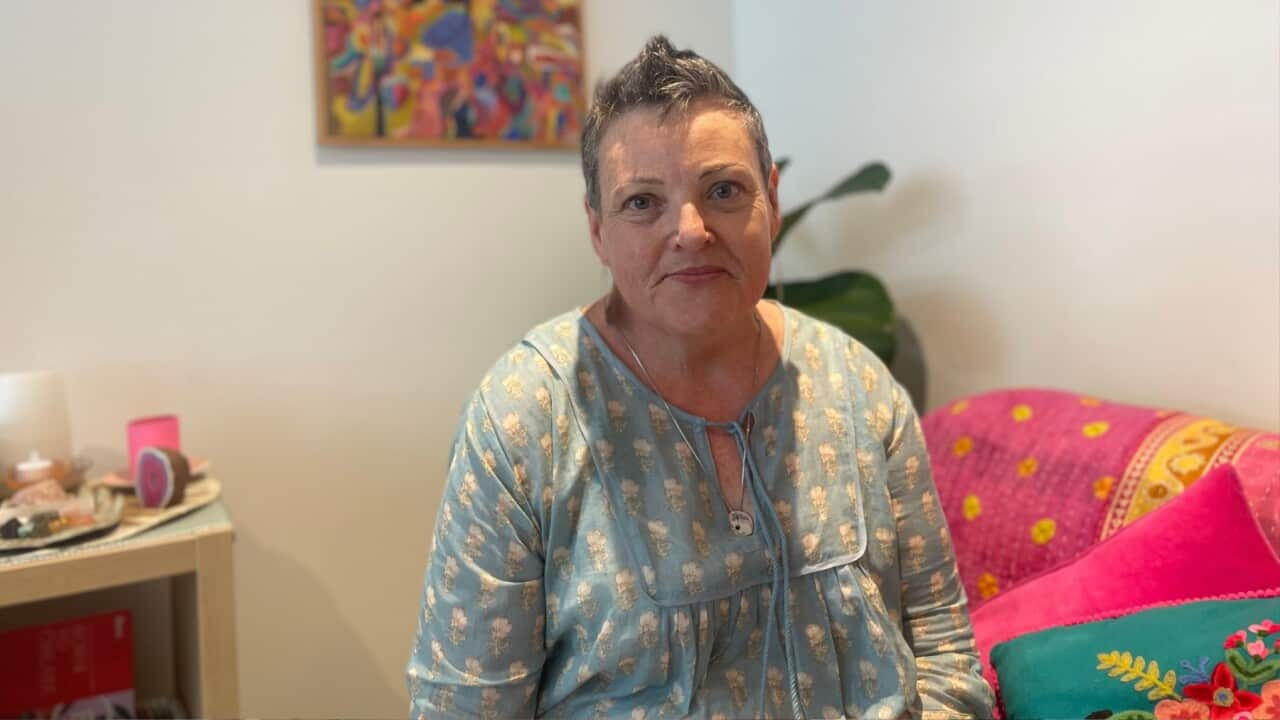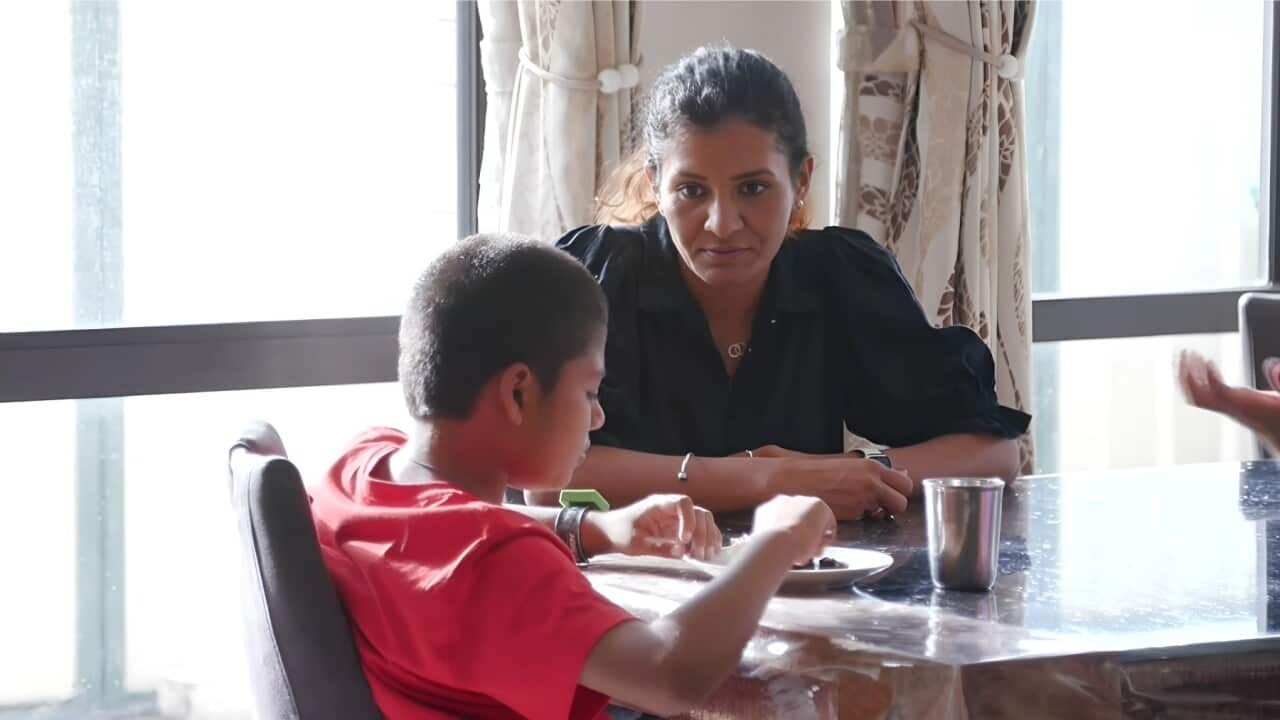TRANSCRIPT
A historic apology to those in New South Wales who shared harrowing stories of birth trauma:
“Can I begin by apologising to the many, many women who shared bravely, shared their story, shared what has been a very, very difficult process for them, shared what in some cases, took many, many years for them to share. They did so through submissions. They did so bravely during the inquiry hearing process. And I want to say to you that the New South Wales Government and New South Wales Health has listened.”
New South Wales Health Minister Ryan Park says his government will support all 43 recommendations of a world-first New South Wales birth trauma inquiry.
42 of the recommendations have been supported in full, and one in principle.
But it was this very recommendation supported in principle that was promoted as the key solution to preventing birth trauma in the landmark inquiry which commenced in 2023.
Sarah Gell is a mother of two who has experienced birth trauma - and says she's disappointed to see the government only go as far as promising to 'increase access' to midwifery continuity of care rather than ensure access to this 'gold standard of care' for all expecting mothers.
“That just makes it so inequitable? Having an opt-in process for the gold standard care means you have to be in the know. You have to find out about your pregnancy early. You have to do the paperwork, you have to know the right places to send it, the right places to look. It just means that you are not actually giving equitable care. It means if you happen to fall into the bucket that gets a MGP situation, then you're lucky. And if you don't, you don't. And there's places like people like me who do live in those places and did apply and still don't get in. The demand so far outweighs the supply, and it just means that people are missing out, women are missing out, partners are missing out.”
Sarah had a traumatic birth experience with her first son in 2013, giving birth as a young mother at 19 years old.
The pregnancy was unexpected and as Sarah mentions, she missed out on receiving a continuity of care model after applying for Midwifery Group Practice, or MGP.
After transitioning to a shared care model between a GP and the hospital, Sarah then met a student midwife who she was very comfortable with and who was fully aware of Sarah's birth needs.
Unfortunately, her student midwife Kylie was unable to be present at the birth due to a conference in Queensland that same day, leaving Sarah with a midwife who was unaware of her history and birth plan.
This included a neglect of Sarah's requests to not have the umbilical cord cut upon birth, and ensure skin-to-skin contact with her baby, as well as to not receive synthetic oxytocin medication following her birth.
“But in the end, what happened is that after my baby was born, in the minutes after my baby was born, I was given medication. There were interventions that were done to me and there was other things that happened and that I didn't consent to and I didn't realize until a little while later and I felt so violated. I felt like I was so vulnerable in that minutes after birth. I was a hundred percent focused on that baby. And things were done to me by this care provider that I hadn't met before. And it was awful. And I never saw that midwife again. There was no follow up. I felt like there was no consequences, no way to give that feedback of saying, Hey, I didn't consent to that. I didn't say that wasn't my choice. That wasn't what I asked you to do.”
In his press conference following the government's response, Minister Park insisted the government was working to fast track supporting local health districts to provide the gold standard continuity of midwifery care.
“Well, quite clearly what I've said is that I support giving every woman possible across New South Wales the very best access to midwifery care. What I've made very, very clear to New South Wales Health and the team at the ministry is moving towards that MGP. That midwifery group practice is absolutely a priority of mine. Now, what I don't want to say is that we can get there overnight with every LHD. We simply can't because there are gaps in where those LHDs currently sits.”
Sharon Settecasse is President of Better Births Illawarra - and has been campaigning for the last nine years on behalf of women across New South Wales for more empowered birthing experiences.
She says the government's support is promising, in particular the MInister's apology to the thousands of women who shared their stories in the inquiry, but is also disappointed by what she describes as the government's failure to fully commit to the continuity of midwifery care model.
“The most obvious missing element is a really clear commitment to continuity of midwifery led care. And what that means is one or two midwives support a woman of birthing parent from pregnancy birth. And in the postpartum period, women have been very loud and very clear that that is a solution that really is preventative of birth trauma. And it also decreases things like premature births and still births and instrumental births. The evidence supports it as well. So when we received the response and we've looked through the report, it was very obvious that that particular recommendation did not have the detail that it needed to have.”
Ms Settecasse described it as a 'postcode lottery', leaving plenty of 'wriggle room' for the government to not necessarily commit to or invest money in this vital care model in all local health districts.
She says this lack of full commitment is also evident in the government's repeated reference to the Blueprint for Action in Maternity Care published in 2023, which Ms Settecasse says is based off research published in 2019.
She says there are already policies and guidelines in place around trauma informed care and culturally safe practices - but it's clear these haven't been working, and that continuity of care is what women are repeatedly calling for.
“They know your history. They know if you've had previous birth trauma, they understand your medical history, if you have one, if you've got other complex traumas, you've had the opportunity to have that conversation with them. So it's quite concerning that the government is committing to trauma, improving trauma informed policies and guidelines, but not actually putting money and investment into the most obvious solution around relationship-based care with a midwife as a professional.”
In their response, the government said they were committed to increasing the Aboriginal midwifery workforce through their Aboriginal Nursing and Midwifery Strategy, as well as scholarship programs.
They also said they were committed to ensuring culturally safe practices such as those evident in the Aboriginal Community Controlled Health sector and organisations like Aboriginal-controlled birth centres such as Waminda.
First Nations mother, Sam Hall, who you might recall from our SBS News podcast series 'Hysterical', experienced a traumatic birth with her son Koah in 2022.
She says the only midwife she was comfortable with was an Aboriginal student midwife who she was connected with via the continuity of care model - but this midwife wasn't able to be present at the birth.
Sam says she encountered a number of issues with various midwives through her birth experience, describing being dismissed and told to take Panadol for bad back pain just hours before her birth.
But this wasn't her only anxiety.
“That was one of my biggest fears that I had even gone to the head of obstetrics at my hospital and said, I don't want him to be transferred away from me and me not be able to go with him. It, it's such a ingrained thing, I think, in indigenous women and mothers of that fear of having a child taken away. So he got transferred about midnight, and then I got transferred the next day at 3:00 PM and because of the therapy he was having, we didn't even get to hold him for about four days.”
Sam says as an Aboriginal mother she was particularly traumatised by her son being transferred to a different hospital, following a seizure and other complications.
She also hoped the government would demonstrate a stronger commitment to continuity of midwifery care models.
Sam adds that increasing the number of Aboriginal midwives is essential and hopes the government takes immediate action in this space.
“One of the big things I've been saying I think they need is definitely more indigenous midwives, because I know that with me, with my student midwife, she was, I felt the most comfortable with her. I think for a lot of indigenous families, having someone with the same culture who understands, I think that's really important.”
The landmark New South Wales Birth Trauma Inquiry has since inspired an inquiry in Tasmania, as well as overseas in the UK.
Dr Hazel Keedle, who led one of the largest studies of birth trauma in the world in 2021 - the Birth Experience Study - says this survey is now being implemented in 14 other countries.
It found tne in three women in Australia had experienced birth trauma and one in 10 had experienced obstetric violence.
She is hopeful this research can influence reform in Australia and across the world.
“I'm hopeful that what we did with the first survey here in Australia and the input that it's had alongside consumer work then has an impact across the world. I think in Australia, the other states and heritage have been watching and I think they'll be looking, those health services will be looking at their own strategies and guidelines to see whether there are areas that they need to do better on, but sometimes they don't. Like I said, the blueprint was there and this inquiry and report has helped really push that agenda forward. And so sometimes that action is needed to really put this at the front of the health strategy.”
But Dr Keedle says she would have liked to have seen greater empowerment of midwifery leadership in the government's response to the inquiry's recommendations.
“Even though it was supported in principle, is the dedication to midwifery leadership at every single level. They do mention some areas where they're bringing in joint leadership and bringing in midwifery, but they haven't committed to having a chief midwife. They say that they've got a principal midwifery advisor who does a fantastic, who advises to the chief nurse and midwife. And as long as midwifery is only in an advisory role, then it's not going to be able to lead and charge forward with these changes that are needed.”
For mothers like Sam and Sarah, fostering safe and trusted relationships with midwives is key to preventing traumatic birth experiences.
Sarah hopes there can be a cultural shift in some of the power dynamics that place mothers in a more vulnerable position.
“When you go and see a doctor, when you go see a midwife, I think there's a lot of, I'm the less informed and the less important person in this discussion. I think we need to have a mass advocacy campaign, education campaign. Your bodily autonomy works in healthcare. You have the final say in anything that happens to your body.”
If you want to hear more stories like this, investigating bias and discrimination against women and trans people in our health system, you can at SBS News In Depth or wherever you get your podcasts.













